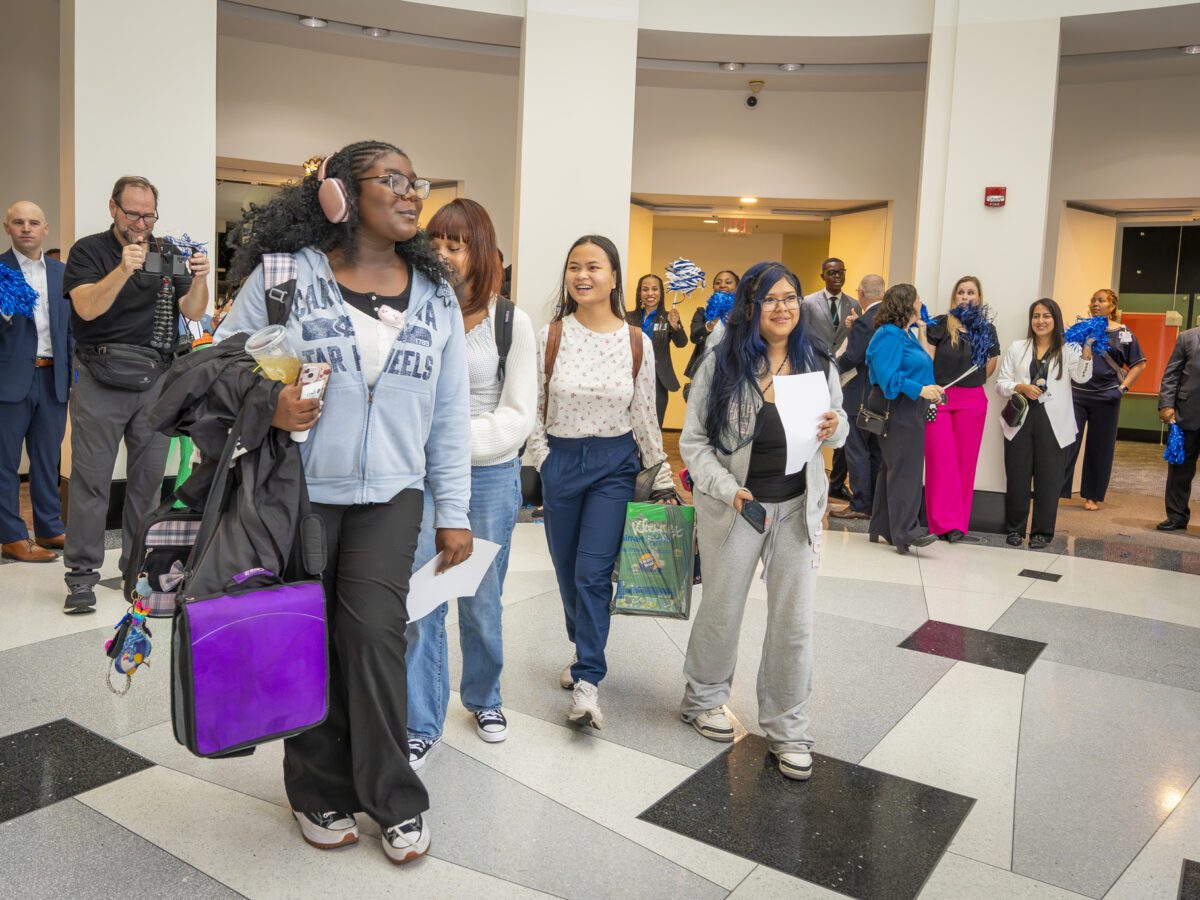
Durham’s new health care-focused high school welcomed 104 students with pompoms and cheers as it kicked off its inaugural school year on Thursday, Aug. 7. Durham Early College of Health Sciences (DECHS) is Durham Public Schools’ fourth Cooperative Innovative High Schools (CIHS).
CIHS, which include early colleges, middle colleges, and STEM or career academies, give high school students the chance to earn tuition-free college credits — up to and including an associate degree or industry-recognized credential — before graduation.
“Your future in healthcare starts here,” said a sign at the school’s entrance.
![]() Sign up for the EdDaily to start each weekday with the top education news.
Sign up for the EdDaily to start each weekday with the top education news.
Led by Principal Joshua Brown, students will earn credentials or associate degrees to enter the health care industry after graduation, including opportunities at Duke Health.
“We are extremely excited to open DECHS and usher our CIH scholars into a year of promise and achievement,” Dr. Anthony Lewis, district superintendent, said in a press release.
The new program is a collaboration between Durham Public Schools, Durham Technical Community College, and Duke Health.
The school received a $29.5 million grant from Bloomberg Philanthropies as part of the organization’s $250 million initiative to create health care-focused high schools in 10 communities nationwide, according to the district press release.
“We’re proud to support the launch of Durham Early College of Health Sciences as part of our national effort to prepare young people for high-demand careers in healthcare,” said Jenny Kane, who leads career technical education at Bloomberg Philanthropies. “By combining rigorous academics with real-world experience and strong local partnerships, schools like DECHS are helping students build brighter futures — for themselves and for their communities.”


CIHS aim to serve a diverse range of students, focusing on students who might not otherwise have the chance or resources to pursue higher education.
Studies on traditional dual enrollment programs show that participation is disproportionately high among white students from affluent, college-bound families. To close this equity gap, North Carolina’s CIHS legislation requires schools to prioritize one of three groups:
- Students who would be the first in their families to attend college.
- High school students at risk of dropping out.
- High school students likely to benefit from accelerated learning.
“Imagine a first-generation college-goer, who may never have set foot on a college campus and really has no understanding of what life would be like in college, but as an early college student they get to be on the campus and they can use campus resources and interact with college students,” said Elizabeth J. Glennie, co-author of “Early Colleges as a Model for Schooling: Creating New Pathways for Access to Higher Education” in a 2023 interview with EdNC.
“It really opens up their eyes and thoughts to the possibility of college, which is one important cultural component of North Carolina’s system,” she said.
On DECHS’ first day, Superintendent Lewis said, “I hope this serves as a model of what’s possible when community partners come together with this unwavering belief that we’re going to do something amazing for scholars for the future workforce.”
Recommended reading



